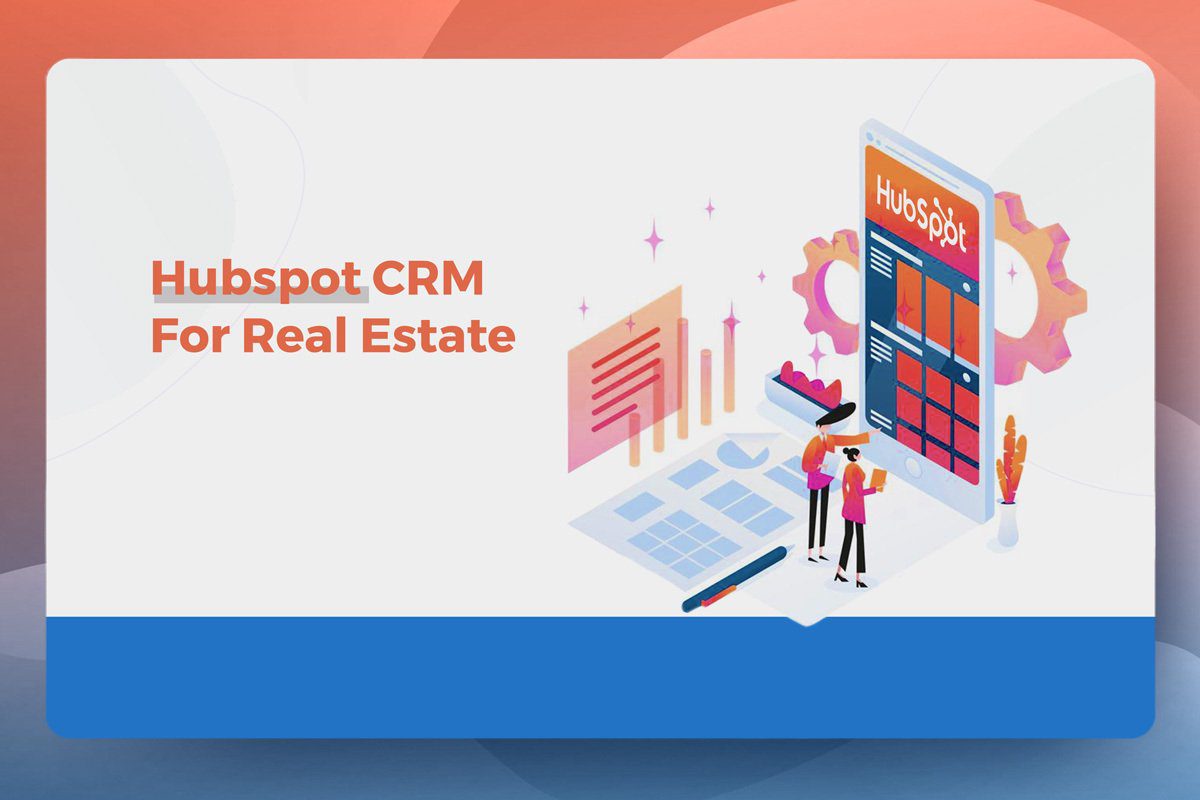Your Real Estate Firm has just reached a new height; one of your agents got the most clients, had a record month, renewed old contracts, and signed new ones. But you learned about these at the very end, and you are not sure how to replicate their success in a new location, or with other agents. But your gut says you should be signing more deals, perhaps converting more leads into customers.
Well, if you’ve not begun to automate the key areas in your real estate business, your gut feeling is completely correct.
Let’s put this into proper context.
The market size for Real Estate grew to USD 3.69 trillion in 2021, with predictions that it will reach USD 3.81 trillion by the end of 2022, and will continue to grow at a rate of 5.2% year-on-year till 2030.
In the US alone, 6.1 million housing transactions were completed in 2021. So, if your real estate firm is not closing an industry-leading percentage of these transactions, you’ve got work to do.
But the good news is, it doesn’t matter if you manage a big team or are a solo real estate agent. Your business is set to scale smoothly once you find a way to keep potential clients from slipping through the cracks of a manual-heavy system. This is where automation steps in.

Why is it Important to Automate the Operations of Your Real Estate Firm?
Automating your real estate firm will streamline your internal operations, create a repeatable, remarkable, customer experience and help you close more sales. For instance, automating simple processes like mailing follow-ups, task and workflow notifications, and synchronization across all the real estate apps you use will instantly take out hours of manual work while knowing no leads fall through the cracks. Thankfully, real estate automation tools do much more. With the right hands, you can automate your firm’s finances, lead and sales funnels, transaction tracking, internal communication/updates, and sales processes.
Real estate workflow automation helps you simplify your entire business operations by delegating regular tasks to software tools. With automation, your team’s work becomes more efficient.
Most clients now prefer, if not expect, to have a solid relationship with their agent before completing any purchase. But with many moving parts, it’s likely you are not able to have that consistent personal relationship with all of your prospects. Automation solves this while also allowing you to personalize the experience of every prospect that comes into your lead pool.
So what are the most crucial processes to automate in your real estate firm and what tools should be used? Read on to get the scoop.
Four Real Estate Processes to Automate
1. Lead Generation and Documentation Process

Gathering information from your leads on social media platforms, house listings, and open house events, and then documenting them manually can be time-consuming. First, you locate and gather these leads; next, you begin the task of registering them into your firm’s spreadsheet/database, one after another before deliberating on what to do next, and probably forgetting details about the lead.
Meanwhile, integrating a real estate CRM (Customer Relationship Management) tool, for instance, will help to group your leads automatically into a sales pipeline. Plus, a good number of real estate CRMs and automation tools integrate seamlessly with lead-generating third-party platforms such as Facebook.
Once you have all your leads in the same pipeline, you’ll be able to handle all subsequent interactions effectively, while personalizing your potential clients’ experiences. By automating your firm’s lead generation and documentation processes, you’ll also be able to identify your best lead source and strategically pay more attention there.
2. Team Workflow Process

If the internal operations of your real estate firm are largely non-digitized, activities such as appointment bookings, document filing, project monitoring, client meetings, inspections, emails, and contract signings/reviews would likely be done manually. By automating your workflows with a real estate CRM tool, these activities become streamlined, with little human effort needed.
While there are many out-of-the-box processes to automate, your team will become more productive after a review of your specific processes, before proceeding to create a custom-made automated workflow for every action taken.
For instance, you can create Agent Dashboards to manage the list of houses assigned to each agent, houses shown, pending contracts, and so on.
A real estate CRM tool creates detailed and easy-to-read reports and insights. And since these automation tools are flexible, you get to analyze the different workflows, measure performance and optimize appropriately.
3. Marketing and Sales Process

It is unlikely you’ll close real estate sales without communicating effectively with clients using different messaging and marketing channels. Aberdeen Researchers found that automating a real estate firm’s sales and marketing activities can increase lead conversions by 53%. This implies that automating your sales and marketing activities with a real estate CRM tool will help you focus on warm leads from your sales funnel. With the tool, you can also:
- Create a buyer persona and start tracking your clients’ online presence.
- Create personalized client emails and marketing messages.
- Store every interaction history.
- Send out informative reminders at intervals to improve engagement.
- Create automatic replies for messages from interested leads.
4. Home/Field Appraisal and Inspection Processes

Inspections/appraisals are crucial to any real estate firm as they provide first-hand information and knowledge about a property’s condition and worth. But with the amount of time and effort you’ll need to schedule inspections, and appraisals; gather knowledge data; take pictures for analysis, and prepare reports and certifications for a single client, there is a high chance that other work and prospects will slip from your reach, especially if your firm is new and has fewer team members.
With automation tools set up, your clients, property managers, field inspectors, and appraisers, will seamlessly schedule and track inspections, book meetings, locate field inspectors within specific areas, and most importantly, cut down on human error and delays while maintaining efficient operating standards.
What are the Best Tools for Real Estate Automation?

Many automation tools manage basic and complex real estate tasks without any glitches. However, below are some of the best tools you can lay your hands on in terms of flexibility, cost, functionality, and customization.
-
Dotloop
Dotloop is a comprehensive real estate marketing platform with many automated functions. Among other features, it has e-signatures, forms, sharing, text tracking, and data storage tools. As customers tell other potential customers about their fantastic experiences, the end-to-end customer experience it provides is sure to increase the number of recommendations your firm gets.
-
Spacio
Spacio is an open-house real estate workflow automation tool that speeds up the process of getting new leads. This tool updates your lead management system without needing any time-consuming manual process to gather the contact information of your prospects. One of its most valuable features is the custom registration forms for virtual and in-person events. It has three different packages you can choose from, depending on the number of sub-agents and teams you have.
-
MailChimp
MailChimp is a marketing tool with an embedded marketing CRM for real estate. With MailChimp, you get to also integrate other preferred tools for your business. Many real estate firms use Mailchimp for their email templates. You get to quickly create and automate email campaigns, newsletters, drip campaigns, and other marketing campaigns to generate and convert leads. You’ll also have access to real-time key insights and analytics about your campaigns.
-
HubSpot CRM For Real Estate
The HubSpot CRM is an inbound marketing platform that offers features including email templates, call trackers, contact management, schedule planners, and sales automation, among others. Over time, it has become a go-to tool for real estate workflow automation, marketing, and sales. Every real estate agent/team, whether residential or commercial sector, can use the HubSpot CRM to streamline the processes involved in buying, selling, and renting properties.
Whether in the office or on the road, a HubSpot CRM for real estate helps you stay on top of relationships, establish a good rapport with clients, and have smooth interactions with buyers and sellers. If utilized correctly, HubSpot’s CRM would help to scale your real estate firm, enhance your service delivery, and automate your key operations.

HubSpot Real Estate CRM Features
HubSpot Real Estate CRM provides features that focus on satisfying your firm’s needs without compromising clients’ satisfaction. For instance, it allows you to create a budget, location, and other relevant information quickly to complete a comprehensive customer profile. Some of its other useful features include:
-
Lead Management
This feature helps collect leads from different channels, including social media platforms, phone calls, and emails. All your leads are collated on a single platform. So you consistently communicate and nurture all without missing out on any.
-
Operation Management
HubSpot real estate CRM helps to collect and arrange valid property information. With its transaction management features, you can organize checklists, upload and exchange documents virtually, and share vital information to keep your firm running smoothly.
-
Client Communication and Pipeline Management
HubSpot CRM real estate automation system allows you to communicate, keep leads, close deals, and follow up on prospective clients, using its automated messaging and reminder features.
And the basic CRM is FREE!
Setting Up Your HubSpot CRM for Real Estate
- Create an account for your real estate firm on HubSpot.
- Integrate HubSpot CRM for real estate with your website/email/social media.
- Create preferable filter tags to organize your data.
- Move your contact records into your HubSpot CRM.
- Create tags to define each stage in a transaction.
- Share access to your newly integrated HubSpot CRM with your team.
- Create ads to generate new leads and track performance, while you continue to nurture existing ones.
- Continue to customize and automate processes with other tools on the platform.
There you go! Start using one or some of these tools in your real estate firm. Within a few months, the results will wow you. And if you’d rather have a team of automation experts assist in automating your firm, schedule a free consultation with us today. We’d love to help.


